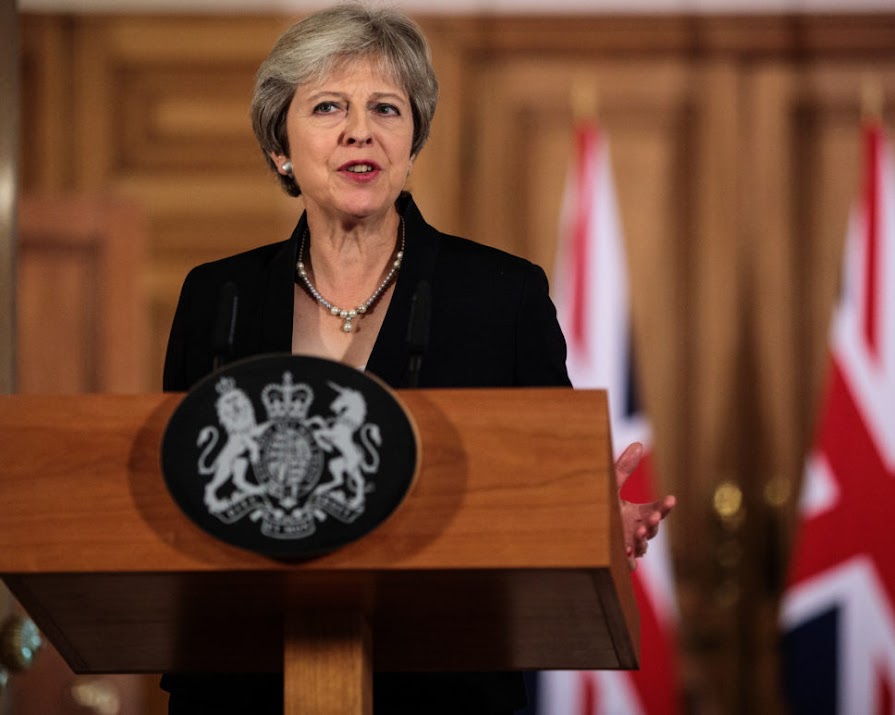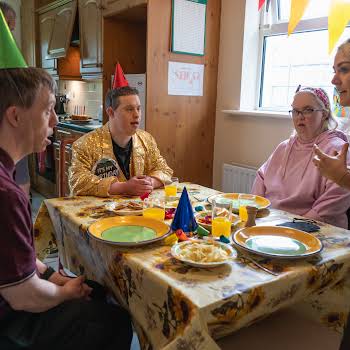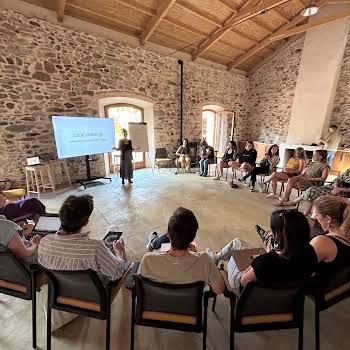
Brexit: Irish government says Theresa May has ‘unrealistic expectations’ about backstop
By Jennifer McShane
05th Feb 2019
05th Feb 2019
British Prime Minister Theresa May has said undoing any of the progress made in Northern Ireland in recent years would be “an absolute horror” and that her commitment to avoiding a hard border was “unshakeable.”
However, she said the backstop as currently worded could not win the support of the House of Commons.
Speaking in Belfast this afternoon as part of a two-day visit, May said she remains committed to the Good Friday Agreement and against a hard border returning between the North and the Republic of Ireland.
Related: MPs vote for ‘alternative arrangements’ to Irish backstop
May was speaking of the lengthy Brexit debate in the House of Commons last week which voted to back an amendment – known as ‘The Brady Amendment’ – seeking to replace the Irish backstop with “alternative arrangements” to avoid a hard border in Ireland.
“I’m here today to affirm my commitment, and that of the UK Government, to all of the people of Northern Ireland, of every background and tradition,” she said.
“We are absolutely committed to there being no hard border between Northern Ireland and Ireland.”
The amendment was put forward by Sir Graham Brady, who said if the motion was approved by Parliament as it was, it would give May “enormous firepower” to go back to Brussels and renegotiate the Brexit divorce deal.
‘The Brady Amendment’ seeks a redrafting of the plans for the backstop, with the plan also to seek an extension to the transition period – the time where the trade and other matters operate the same as it did prior to the UK leaving the EU – until 2021.
The Irish government welcomed May’s border comments but also said she had about “unrealistic expectations regarding what can be achieved” in relation to the backstop element of the draft Withdrawal Agreement.
“I want to work closely with Taoiseach Leo Varadkar and the Irish government to strengthen the bilateral relationship we have built,” she said.
What happens next?
A new idea has been put forward by UK housing minister Kit Malthouse called ‘The Malthouse Compromise.’
This week all the #Brexit work is being done behind closed doors. Here’s what’s going on. pic.twitter.com/ifNBg8L2Mm
— Simple Politics (@easypoliticsUK) February 5, 2019
These are a step towards finding the ‘alternative arrangements’ that were voted on last week.
The plan contains two choices to be offered to the EU: one for how the UK will leave with a deal, and one for how it will leave without. Plan A is similar to the current Withdrawal Agreement (with the implementation period extended until no later than December 2021), along with changes to the Irish backstop – which would be changed to become a “basic free trade agreement” which relies on existing administrative processes. Plan B assumes that agreement on the Withdrawal Agreement is not possible and creates a “transitional standstill period.”
Theresa May will now see if Brussels accept the proposal, which, according to reports, doesn’t look too likely.






















